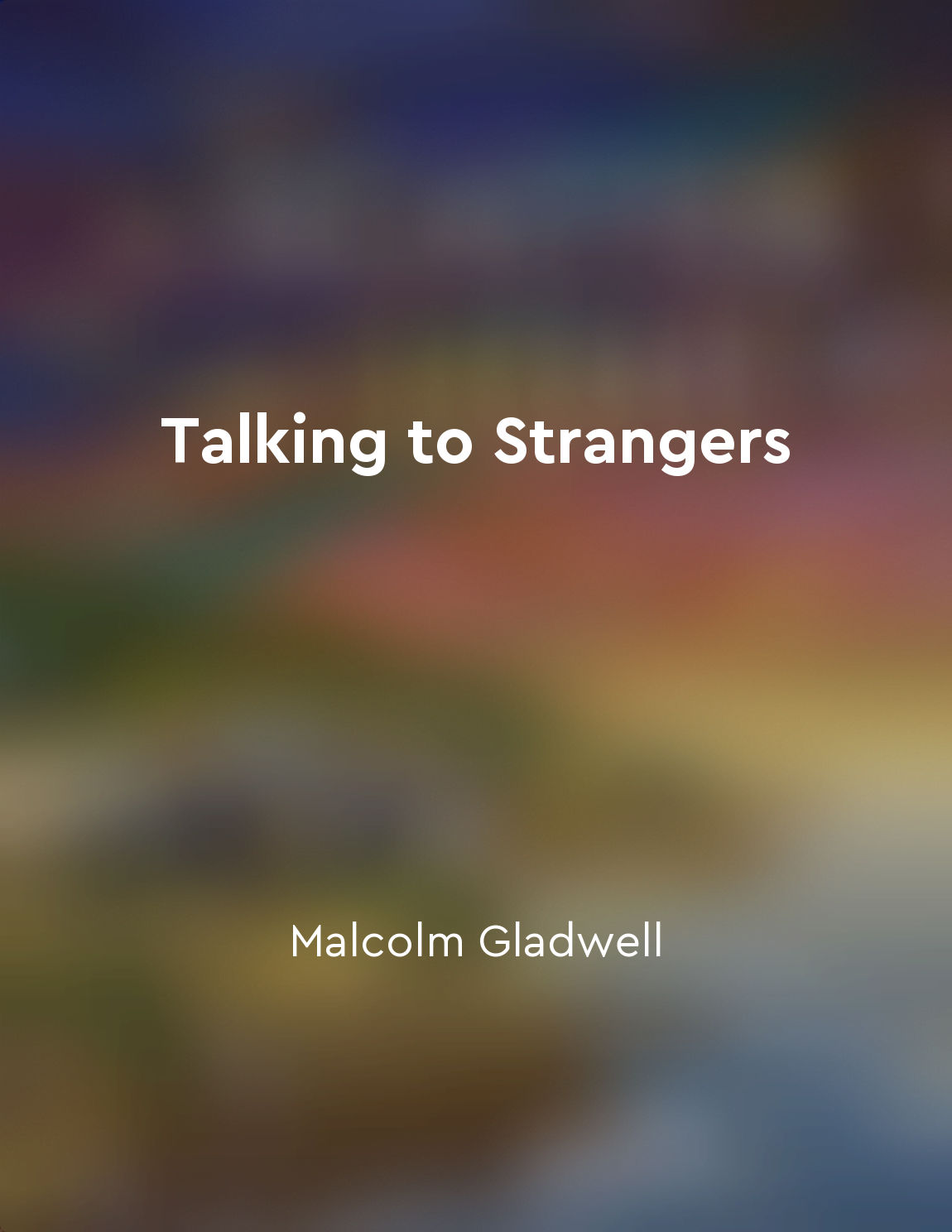Overconfidence can lead to misjudgments of strangers from "summary" of Talking to Strangers by Malcolm Gladwell
The human mind is a marvel of ingenuity, capable of processing vast amounts of information in the blink of an eye. However, this incredible capacity also comes with its pitfalls, particularly when it comes to our interactions with strangers. Overconfidence, that deceptive sense of certainty that we often feel in our judgments, can lead us astray when it comes to assessing the intentions and character of those we don't know. When we encounter a stranger, our brains instinctively seek to categorize and make sense of them based on the limited information available. This process is known as "defaulting to truth," where we assume that people are telling us the truth unless proven otherwise. This default setting is a product of our evolutionary history, where trust and cooperation were essential for survival in small, close-knit communities. However, in today's complex and interconnected world, this instinctive trust can backfire when dealing with strangers who may not share our values or motivations. Overconfidence in our ability to read others can blind us to potential warning signs or inconsistencies in their behavior, leading to misjudgments that can have serious consequences. Gladwell highlights the case of Bernie Madoff, a notorious fraudster who fooled countless investors and regulators with his Ponzi scheme for years. Despite numerous red flags and inconsistencies in Madoff's story, many of his victims and associates chose to overlook or dismiss these warning signs due to their misplaced trust and overconfidence in his credibility. In another example, Gladwell discusses the case of Amanda Knox, a young American student who was wrongfully convicted of murder in Italy. The authorities and media painted her as a cold-blooded killer based on their misinterpretation of her behavior and character, demonstrating how our biases and preconceptions can lead to grave errors in judgment.- The concept of overconfidence in our ability to assess strangers serves as a cautionary tale about the limitations of our perception and the importance of humility and skepticism in our interactions with others. By acknowledging our inherent biases and limitations, we can strive to make more informed and thoughtful judgments when navigating the complexities of human relationships.


